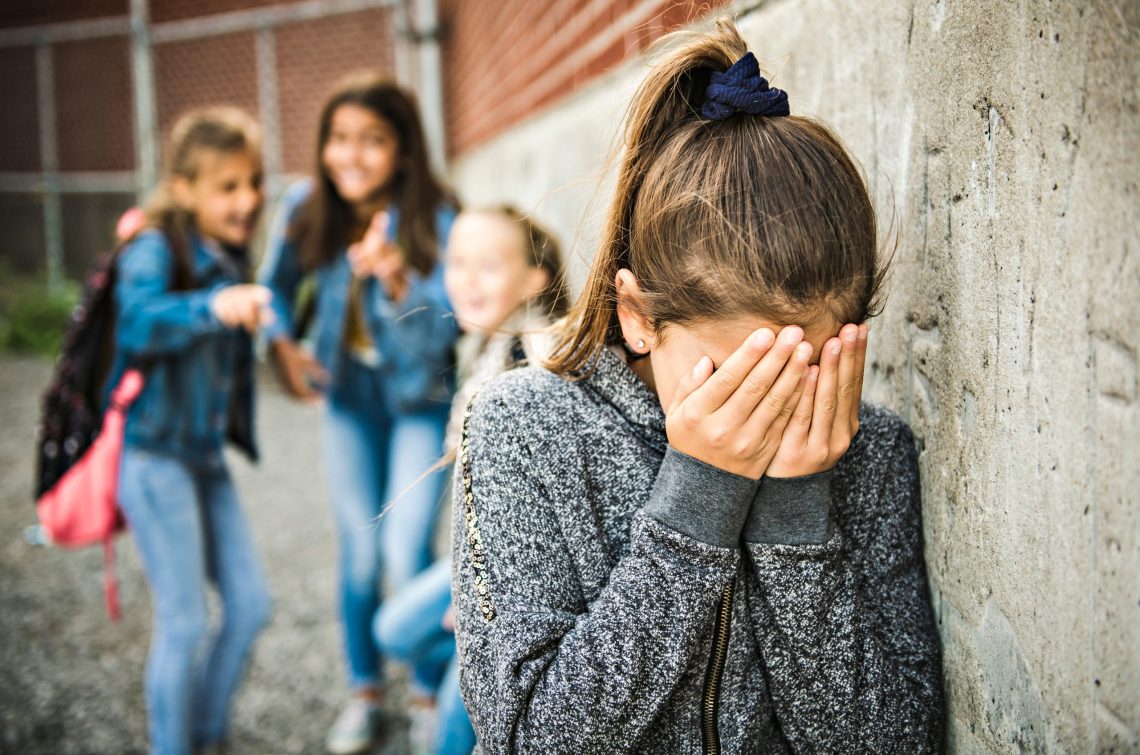
How to Deal with Your Children’s Bullying?
Insults, teasing, fights, ignorance, theft of school supplies… These are situations that children encounter when being bullied on a daily basis.
Bullying is not a minor problem or a “simple children’s issue”. In addition to affecting a fundamental stage of life such as childhood, its effects can permanently alter our way of being. Bullying in childhood leaves a mark on the personality that is being formed, influencing the development of emotions, behaviors, and thoughts of the future adolescent and adult.
If the problem of bullying is detected in time, the child can be the adult he or she would have been without this incident and may even come out stronger. Do you want to know more about children’s bullying? You’ve reached the right place. In today’s article, that’s exactly on what we are going to shed light on. Keep reading!
How Does Bullying Start?
In most cases, the scenes are very similar. A child sets himself up as a leader by initiating a bullying that, little by little and with the support of the rest of the group, becomes raging against one or more classmates. And therein lies one of the keys to today’s bullying: belonging to the group.
The children feel protected by the group, which justifies their cruelty and gives them the perfect excuse to continue their behavior. They will be telling themselves, “everyone is doing it so why not me?”
Little by little, a vicious circle is created that is difficult to break, as the stalkers feed off the victim’s submission and silence and experience a strange joy that encourages them to continue their routine. And it is not necessary to get to the point of physical aggression; in many cases, the permanent insult, the mockery, the humiliation… are enough to weaken the character of the child chosen as a victim.
Symptoms That a Child Is Being Bullied
Communication and trust with our children is essential for them to feel brave enough to tell you that they are being bullied. However, it is estimated that more than half of the children who are being bullied do not come forward because of fear or shame. That’s why it’s important for you to be aware of certain symptoms that are repeated in many children:
He complains in the morning of all kinds of pain to avoid going to school, even vomiting.
- He loses his appetite or binges.
- He has trouble falling asleep, and when he does fall asleep, he often wakes up unable to rest.
- He or she often says that he or she has lost some of his or her belongings or comes home with broken things
- His school performance declines and he has difficulty concentrating, doing homework or studying
- Has frequent mood swings: gets overly angry, cries, is irritable, won’t say what’s wrong
- He/she starts to wet the bed at night when he/she already had perfect control of his/her sphincters.
What to Do if Your Child Is Being Bullied?
As mentioned earlier, it is essential to have an honest communication with our children to find out not only if our little one is suffering from bullying, but also any other problem that may be affecting him.
1. Listen carefully, showing interest in what is happening at school every day. Ask about what they’ve been doing, what they’ve been learning, who they’ve been playing with at recess, and if you notice anything sad or down, remind them that you’re there to help and understand them and that they can tell you anything they want.
2. Don’t trivialize the subject and repeat themes such as “it happened to all of us”, “they called me names at school too”, “it won’t be as bad” or “you’ll probably say something to them too”. Your son is showing you his deepest feelings, the least you can do is listen to him and give him the importance he deserves. Don’t encourage vindictive behavior such as “so fight back” or “if he hits you, hit him back”. This is about overcoming the problem, not turning your child into someone he or she is not.
3. Talk to her teacher to see if she has noticed anything as well, and if not, ask her to pay special attention to your child for a few days and do it in a subtle way. It’s not about him staying by her side all day so he won’t be picked on, but about observing the stalkers’ attitudes from a distance.
4. If it is confirmed that your child is being harassed, talk to the school’s management so that the anti-harassment protocol can be put in place. The education departments of the autonomous communities have a strict code of action in this matter that must be strictly followed and begin to be applied as soon as possible.
5. Do not try to talk to the bully or his parents, as this will only make the situation worse. If you talk to the child, it may increase their anger towards your child and the bullying will get worse and if you do it with the parents, they may not even know their child is doing it. Let the center management contact them and inform them.
6. Encourage your child to do an activity that he/she is good at or that he/she particularly likes, this will improve his/her self-esteem.
7. Psychological therapy is very helpful for children who suffer from bullying and teaches them how to deal with their anxiety, fears and social anxiety.
What if My Child Is the Bully?
It’s not easy for a parent to know that their child is hurting one of their peers. They think that when a child acts this way, it is because something is happening to him: there is something in his environment that destabilizes him, he wants attention because he has some kind of deficiency, he does not feel comfortable at school for something…
As with the abused child, the basic thing is to listen to him and try to find out why he is acting this way, not to get angry and to follow the advice of the school principal.
Talk to your son and explain slowly that this is not a good thing to do, that it makes you sad and that you would not like to think that he could go through the same thing. Also, offer to get him some psychological help to deal with this problem.
There you are! With those information, you will be better armed to deal with your child’s bullying. What are the first steps you will take after reading the article? Let us know in the comments below.
You May Also Like

Things To Look Out For When Choosing A Child Day Care
2021-09-21
How Quickly Do Babies Pick Up Languages
2022-02-15

